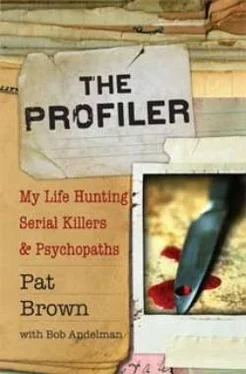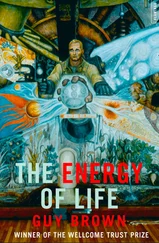That would have been the totality of my life if, along the way, Walt Williams hadn’t moved into our spare room as a boarder.
MY HUSBAND WORKED hard.
He was an engineer for Siemens Medical Systems, where he still works today, fixing x-ray equipment. He was a very, very good father to the kids. We had a family bed when the children were babies. He slept with our daughter on his chest, put her to sleep when she wasn’t nursing, and, as the children got older, he was always involved with their activities.
When they were of school age, he was the soccer coach in town. Everybody loved him. He was involved with the Boys and Girls Clubs. He was a great dad.
Our life as husband and wife, however, had its problems. None stemmed from being of two different cultures or races. I had his support for homeschooling the children and being a sign language interpreter. The years of investigating Walt after that fateful day at the police station was another matter.
When the Walt incident occurred, he did not support me in going to the police because, he said, “Why cause yourself this trouble?” which really meant, “Why cause me this trouble?” “Just forget about it,” he told me. On the other hand, oddly enough, he did nothing to stop me from pursuing more information about Walt after the police took no action. On rare occasions, he would be curious and ask, “Did you find out anything about Walt today?” When I started investigating Walt, even he found it fascinating-not my work, but the stories I told about him.
Tony did not really believe that Walt was a killer. He did not believe it was necessary for me to do what I did. He did not believe I would be able to do anything. He saw me as a homemaker. This is the man who saw me pregnant. This is the man who saw me birth our children. This is the man who saw me nursing twenty-four hours a day for more than two years with one child, then two years with another, babies always with me, the absolutely devoted mother. This is the man who saw me kneading bread on the table and playing games on the floor with my children and holding them on my hip while I tried to get things done in the house.
He always said two things about me: “You’re honest” and “You’re intelligent.” Those were the two things he respected about me, but he didn’t think I could take what intelligence and schooling I had and apply it practically. He didn’t see me as being able to understand psychology and getting into profiling and detective work. To him, that was something completely foreign. He thought I was being grandiose in my goals.
When I later wanted to pursue criminal profiling as a career, he said he couldn’t see the point, I was already a successful sign language interpreter, and he didn’t seem to understand I wanted to achieve something different at this point in life. He was a man who didn’t like change and wasn’t interested in risk taking; he thought I should just give up my mission.
So when I came home at the end of a day of being insulted by local law enforcement, he didn’t say, “Don’t worry, honey. I believe in you.” He went about his business and I went about mine.
I wish I had been a criminal profiler before I got married; then maybe I could have seen the writing on the wall before I stepped up to the altar. After twenty-five years of marriage, I ended up divorced, my family torn apart. If I feel even one hundredth of the pain a family destroyed by the murder of their child experiences, I can’t begin to imagine how they endure. I at least still have all my children. They don’t.
CHAPTER 3.WALT:THE SUSPECT
In 1990, the police did nothing with the evidence I brought to them following the murder of Anne Kelley. But in spite of my nerve-racking, dead-end experience at the police station, I still assumed the detectives would be knocking on my front door within an hour to interview Walt Williams. If they had, they might have gotten the evidence they needed to make him a person of interest. The day after the murder, Walt went off on a hike. He put on long pants and a long shirt to leave the house, and I thought, God, that looks uncomfortable. It was a hot, muggy day in June, and while I knew he was headed to a wooded area where it made sense to cover your legs for mosquito and tick protection, he’d never done it before. Why all of a sudden, when he always wore shorts and a short-sleeved shirt, was he suddenly covering himself from head to toe? Was he covering scratches on his body?
If the police had interviewed him right away, as I begged them to, they could’ve said, “Roll up your sleeves,” and they might have seen scratches.
Anne Kelley was murdered on Saturday and the evidence was in their hands on Monday, less than forty-eight hours later. They’re gonna come. They’re gonna do what they have to do, I thought. We’d all breathe a sigh of relief, and that would be it. I didn’t want to be a hero. I just wanted the case to be handled, my life to return to normal, and Walt to go away.
TONY TOLD WALT -on my insistence-that he had to leave our home. The day after I went to the police, Walt walked out my door and kept right on going, without ever being considered a suspect.
I was left in a complete void, not understanding what the heck had happened. It was like being in Rod Serling’s The Twilight Zone. It shook my sense of reality. Was I making connections where there were none? The police were not impressed by anything I told them, making me feel that I was a delusional housewife and just making stuff up.
But I never said I knew Walt Williams was the killer of Anne Kelley. What I said was that his behaviors were in line with a person who could have committed her murder, that if one put together his admission of being on the path that night with the evidence I found in his trash and his bizarre behavior, an investigator should want to learn more about this guy. That’s what my brain told me. My information should have led the police immediately to consider him a suspect in this crime, yet it didn’t. That meant either the police were incorrect in their perceptions or I was a pitifully amateur armchair detective.
I COULDN’T GET what had happened out of my mind. I got the newspaper every day expecting I would open it and read, Walt Williams has been arrested for the murder, and I would go back to my normal routine. But time moved on and there was not another word in the paper about the crime. I waited and waited, and finally, confused, I stopped expecting to see a newspaper story with any developments in the investigation.
I went back to homeschooling my children and working nights as a hospital sign language interpreter. As for the police, they never called.
A rumor went around town that the killer of Anne Kelley was another young man, Michael Potter, age eighteen, who lived with his parents in a house that stood right where the path intersected with the road. Michael was known to have hung out with other teenagers in the area where Anne Kelley’s body was found. It was a woodsy area where they would party and smoke pot. The word was that this young man shot himself five days after the crime and that he was the one who murdered Anne.
I was stunned. That was why the police never contacted me. I guess it wasn’t Walt. I must be wrong.
It seemed that it was simply coincidental that Walt exhibited such strange behavior, had circumstantial connections to the crime scene, and junk tossed in his trash; maybe this other young man was equally as disturbed but the one who had actually committed the crime.
I tried to put it out of my head. I was wrong. Michael Potter was the guilty party.
Michael was said to have broken up with his girlfriend the same week Anne was killed. He called his girlfriend in the days following the homicide to tell her he was not happy about something he had done in his life. The thing he was “not happy about” was alleged to be the murder. Yet he never confessed to murdering anyone and no one seemed to know exactly what he was feeling despondent about.
Читать дальше












